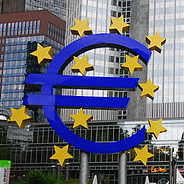At last week’s summit, European Union leaders finalized negotiations and adopted the latest chapter of Europe’s paper trail: the “Treaty on Stability, Coordination and Governance in the Economic and Monetary Union” (.pdf), or in short, the new fiscal compact. While French President Nicolas Sarkozy and German Chancellor Angela Merkel breathe a sigh of relief and declare success, few in the West are focused on what this compact means for the EU’s 10 newest member states in Central Europe (CE-10), the majority of which are not in the eurozone. For these countries, the roller coaster ride ahead will be bumpy.
As demonstrated by Poland during its EU Presidency last year, CE-10 states increasingly play a constructive role in Brussels. Today most CE-10 states, with the notable exception of Hungary, have vibrant economies, are active in Europe’s Eastern and Southern neighborhoods, and have made substantial and positive contributions to the EU. The Eastern Partnership Initiative and a revamped European Neighborhood Policy are two notable examples. But Europe’s latest trend toward a fiscally united core, embodied in the new treaty, juxtaposes two competing impulses in the region: the desire to invest in more integration to ensure a “common home” in a strong Europe and the fear of being marginalized and relegated to yet another “waiting room.”
The January EU summit was important, especially after months of hesitation and discord. But while the speed with which the agreement was reached is welcome, the result is not exactly a silver bullet solution, as evidenced by continued market skepticism. And for member states not in the eurozone, lingering questions remain. In particular, the extent to which they will be invited to participate in key EU economic summits when the document is ratified is a big sticking point for Poland. Looking out from Prague or Warsaw, the view is a mixed bag of good, bad and ugly:

